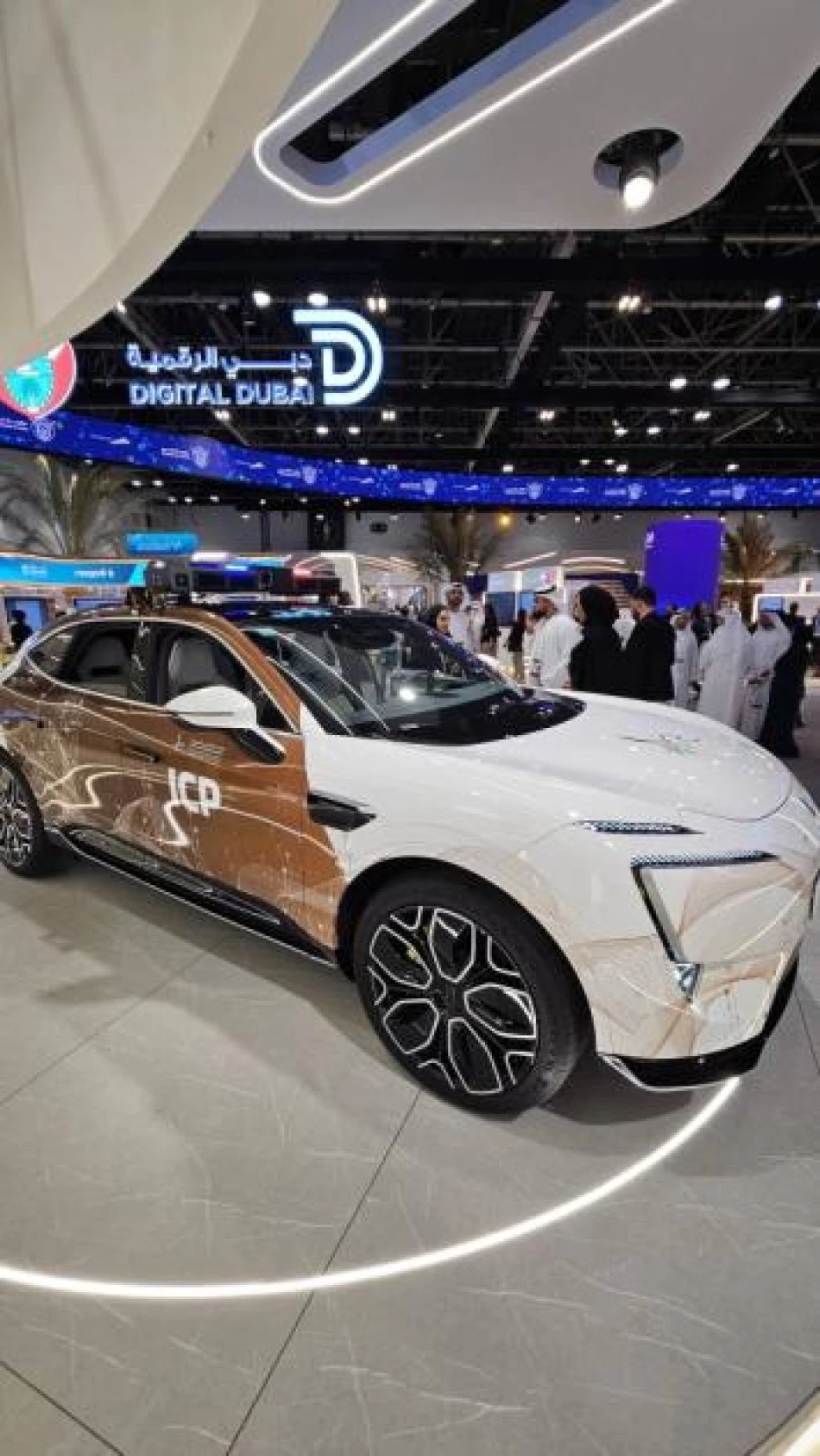
UAE's Smart Cars Uncover Residency Violators in an Instant
The UAE's Federal Authority for Identity, Citizenship, Customs and Ports Security unveiled an AI-powered smart vehicle that can identify visa violators in real-time using facial recognition and iris scanning technology. The electric vehicle, equipped with six smart cameras, can recognize up to 50 people within seconds and operates within a 10-kilometer range, marking a significant shift toward automated immigration enforcement.
The authority showcased this "Smart Violators Vehicle" at the 45th GITEX Global 2025 exhibition in Dubai. The mobile unit connects directly to the authority's databases and uses artificial intelligence to analyze faces and match them against immigration records instantly.
Here's how it works: The vehicle patrols designated areas while its cameras continuously scan faces in crowds or specific locations. When the system identifies someone with visa or residency violations, it alerts the inspection team immediately. The vehicle can process biometric data on-site, allowing officers to verify identities and issue penalties without returning to a station.
The technology goes beyond simple identification. The vehicle includes predictive analytics to help officers make quick decisions and secure connections to central databases for accurate processing. People caught violating immigration rules can pay fines directly at the location through the mobile unit.
Privacy safeguards are built into the system. The vehicle only stores facial data for 24 hours after capture, and the biometric registration applies to residents aged 15 and above. The authority designed these limits to balance security needs with data protection concerns.
The smart vehicle represents the UAE's broader push to digitize government services and reduce manual processes. Traditional immigration inspections often require multiple officers, paperwork, and trips to processing centers. This mobile solution cuts those steps significantly.
For immigration authorities worldwide, this technology signals a shift toward proactive enforcement rather than reactive measures. Instead of waiting for violators to appear at checkpoints or borders, the system actively identifies them in public spaces and residential areas.
The vehicle will enter service in early 2026. The authority demonstrated live scenarios at GITEX, showing how the AI system detects, analyzes, and verifies individuals through an interactive screen that highlights the technology's operational efficiency.
This development comes as Gulf countries increasingly adopt smart city technologies and automated government services. The UAE has been particularly aggressive in implementing AI across various sectors, from traffic management to public safety.
Most Viewed News

 Omar Rahman
Omar Rahman






